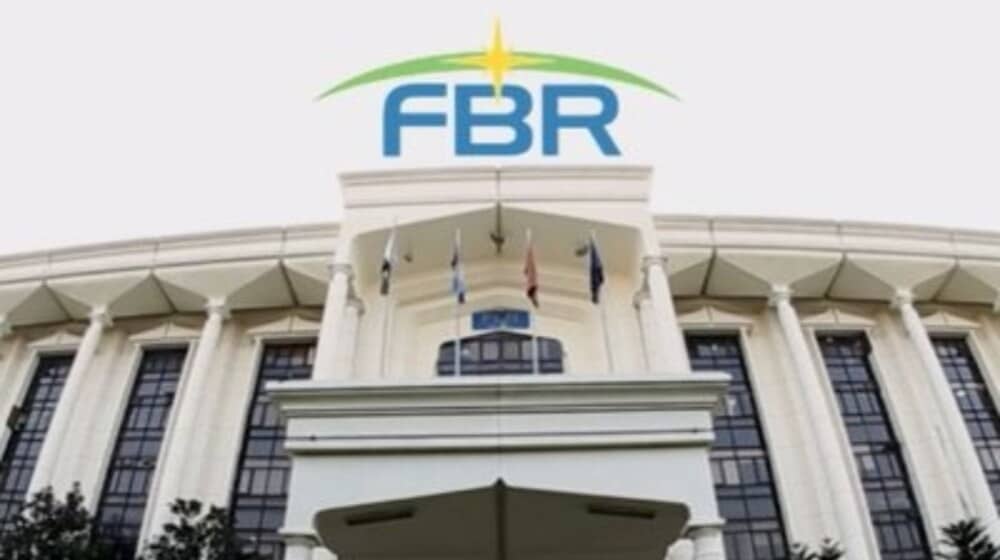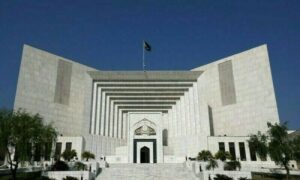Islamabad, Oct 3: The Pakistan Business Council (PBC) has consistently pushed for a fair and stable fiscal policy that operates independently of the Federal Board of Revenue (FBR) and is effectively enforced by it.
The PBC argues that combining policy formulation with tax collection results in short-term revenue-driven strategies that hinder the long-term growth of the economy. In a recent tweet, the PBC stated that a higher tax-to-GDP ratio can be achieved through:
- A fiscal policy that fosters investment and business growth, thus increasing taxable revenue.
- Broadening the tax baseby incorporating untaxed and under-taxed sectors of the economy.
Pending the separation of policy from collection, the PBC engaged in a detailed discussion with the Chairman of the FBR regarding plans to enhance the enforcement capabilities of the FBR.
The PBC expressed its support for these proposals and assured the Chairman of its full cooperation. To ensure positive outcomes from the transformation plan, the PBC made several recommendations:
- The distinction between filers with small versus large incomes and assets is appropriate, as is the restriction of certain benefits for individuals who do not declare their income and assets.
- The FBR should prioritize transparency in its operations, particularly through the Pakistan Revenue Automation Limited (PRAL) or other platforms, to utilize databases for expanding the tax net.
- Past measures, such as denying benefits and imposing penal withholding taxes on “non-filers,” have not effectively broadened the tax base.
The PBC emphasized the need for the FBR to inform the government and the public about how some proposals could impact the informal economy, especially concerning employment.
It acknowledged that while change might involve challenges, transparency is crucial to the transformation process.
The PBC proposed disconnecting utility services for businesses not registered for sales tax and restricting “non-filers” from using credit and debit cards for international expenditures. It suggested that these measures be phased in rather than implemented abruptly.
The council highlighted challenges the formal sector faces in conducting Know Your Customer (KYC) checks on all suppliers and customers and received assurances of cooperation from the FBR in resolving these issues. It also raised concerns about the denial of input sales tax offsets despite transactions being with FBR-registered businesses.
The FBR indicated plans to create a “Red, Yellow, Green” classification system for registered businesses to guide appropriate KYC levels for the formal sector.
Subject to legal clearance, the PBC supported the FBR’s proposal to limit cash withdrawals while welcoming the decision not to restrict cash deposits.
The council requested that the FBR allow time for workers and daily wage employees to open bank accounts for wage deposits and suggested incentivizing non-cash transactions with provincial agreements.
The PBC also discussed utilizing technology to track goods movement and recommended conducting pilot programs to assess and enhance its effectiveness.
The council urged the FBR to be cautious and avoid overburdening the formal sector, particularly large taxpayers, with additional audits. Instead, it should concentrate its limited resources on individuals not currently in the tax net.
The PBC supports the FBR’s plans to improve border controls to combat smuggling and has long recommended securing Exchange of Data Interface (EDI) agreements with key trading partners to prevent mis-invoicing.
The PBC reminded the FBR of its proposal to recover all customs duties, income, and sales taxes on goods transiting through Pakistan to Afghanistan under transit trade agreements, suggesting that these funds be transferred to the Afghan government for goods exiting Pakistan.
Additionally, it proposed using fuel marking dyes for imported fuel to identify and combat the sale of smuggled fuel.
The success of the FBR’s transformation will depend on the quality of implementation, which requires strong political will and cooperation from the formal sector.









